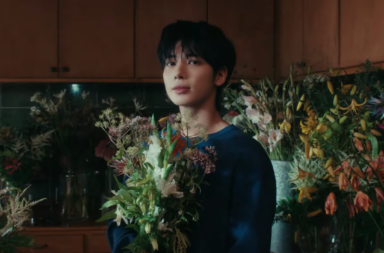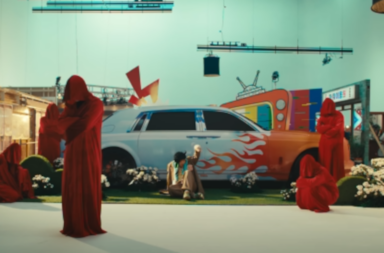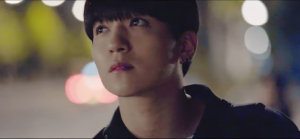 Love doesn’t only come in romantic relationships. Strong emotional connections exist between friends, family, and can even extend to strangers through a love of humanity. Love can also be expressed in numerous ways and be experienced in just as many different feelings. There are reciprocal, unrequited, and unfulfilled connections between people. Day6’s latest contribution to the Every Day6 project touches on the different ways one can be loved and show love as well as when the action of these feelings falls short.
Love doesn’t only come in romantic relationships. Strong emotional connections exist between friends, family, and can even extend to strangers through a love of humanity. Love can also be expressed in numerous ways and be experienced in just as many different feelings. There are reciprocal, unrequited, and unfulfilled connections between people. Day6’s latest contribution to the Every Day6 project touches on the different ways one can be loved and show love as well as when the action of these feelings falls short.
The “When You Love Someone” MV forms part of the cinematic universe of the “What Can I Do” and “I Loved You” MVs, and develops the themes and characters to whom we have been introduced. Like the previous MVs, the audience is shown how relationships exist and change in different forms of love. The ancient Greeks described seven kinds of love: eros, philia, ludus, pragma, agape, philautia, and storge. Most of these forms are explored in the MV for “When You Love Someone”.
When we last saw the characters of this story, each had reached a different point in their relationships with the other players. Jae was mooning over his crush in the coffee shop, Wonpil had sent Sungjin to confess his love to the main romantic interest, and Young K and Dowoon were last seen sharing a moment after Young K protected Dowoon from a bully. “When You Love Someone” takes the audience back to provide context for some of the characters and expands on other stories. We are also given insight into the love triangle between Young K, Sungjin and the girl they like.
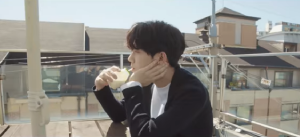 “When You Love Someone” opens with a quick reminder of where we left Sungjin, about to confess to his crush, and quickly pivots to Dowoon at home. It is his birthday but he is alone and his parents’ calendar marks the occasion. Dowoon’s relationship with his parents in some ways represents how storge or the love between a parent and child might fall short: he is given money and a note telling him to eat all his meals but his parents are absent. He’s physically provided for but isolated from the emotional connection of family.
“When You Love Someone” opens with a quick reminder of where we left Sungjin, about to confess to his crush, and quickly pivots to Dowoon at home. It is his birthday but he is alone and his parents’ calendar marks the occasion. Dowoon’s relationship with his parents in some ways represents how storge or the love between a parent and child might fall short: he is given money and a note telling him to eat all his meals but his parents are absent. He’s physically provided for but isolated from the emotional connection of family.
Dowoon’s story is contrasted with scenes between Sungjin and Wonpil. Their relationship could embody the concept of philia — friendship or shared goodwill. It is about loyalty to your friends, sacrificing for them, as well as sharing your emotions. They are shown at a music store, playing instruments together. Students of classical philosophy might be reminded of the statement often made that philia represents harmony. However, the relationship between the characters also has the dimension of inequality despite all appearances. The audience knows Wonpil has been sending longing looks Sungjin’s way while Sungjin has been enamoured with a girl from school. Friendships can be lopsided in their affection just as romantic relationships.
We’re then shown the moment when Jae discovers his crush at the coffee shop. Jae’s instant attraction to the barista is an example of eros or passionate love. Jae’s interactions with his female friend, who is also the romantic interest for Sungjin and Young K, show expressions of ludus or playful love. They are an iteration of philia or friendship but without the angst of the uneven relationship between Wonpil and Sungjin. The girl acknowledges Jae’s fascination with the barista lightly, allowing the viewer to better understand the dynamics of their relationship.
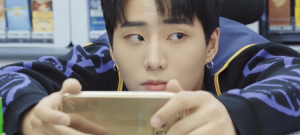
Young K is then shown at his workplace, a convenience store, where he is accused of theft by the owner. Jae’s female friend sees this interaction and her impulse to protect him and her anger following the incident is an example of agape or universal love. Agape can be said to encompass the definition of unselfish concern for the welfare of others. The relationship between the girl and Young K that develops from this initial interaction inspires interest from Young K in her and complicates our understanding of her interest in him in the previous MVs. We see her reaching out to him there, but with new knowledge of this background, there is a possibility that she is simply trying to help him rather than flirt.
The emotional climax of the MV is when Sungjin confesses his love to the girl. He leaves before she’s able to answer about whether she reciprocates his feelings or not. Sungjin returns to his friend, Wonpil who gives him the keyring he was playing with in “I Loved You” as a token of their friendship. The final return of Sungjin to Wonpil is like the idea of pragma. Pragma is a kind of practical love that is long-standing and built on compromise. Wonpil allows Sungjin to pursue his interest in the girl, knowing he will always be Sungjin’s friend.
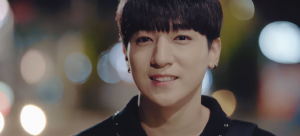
Lyrically the song is also vague as to what kind of love it seeks to represent. There aren’t any gender markers and the sentiments of the lyrics could refer to many kinds of love between people. It speaks to feelings of protectiveness and the desire to assume the pain of a loved one which is an impulse people have in many relationships including parental, platonic, and romantic.
I want to cry for you
I want to hurt instead of you
I don’t want any scars in your heart
Ever again
“When You Love Someone” is the most narrative-heavy episode of the releases exploring the lives of these characters and the different dimensions of love. The MV and the plot become the focus more than the music taken in isolation. The character arcs shown bring nuance and perspective to the song, making the project cohesive and interesting. The Every Day6 undertaking has shown a range of styles and this mini-drama is a compelling addition to the body of work. The song is good on its own, but the story leaves the viewer intrigued for the next episode in the series.
(Psychology Today, Youtube, Lyrics via Pop!Gasa, Images via JYP Entertainment)

